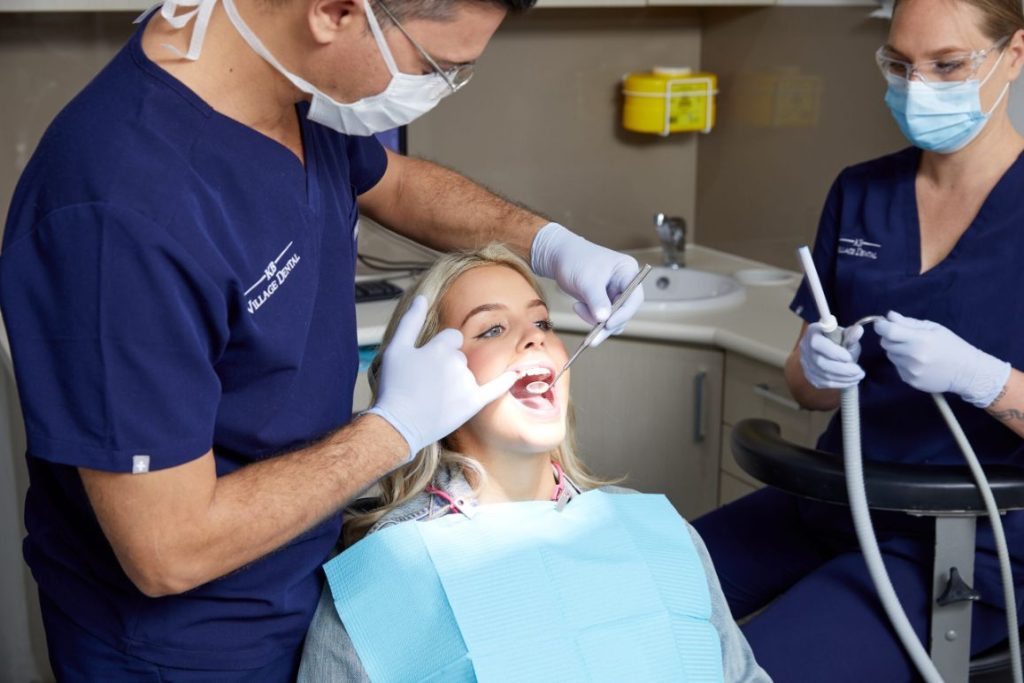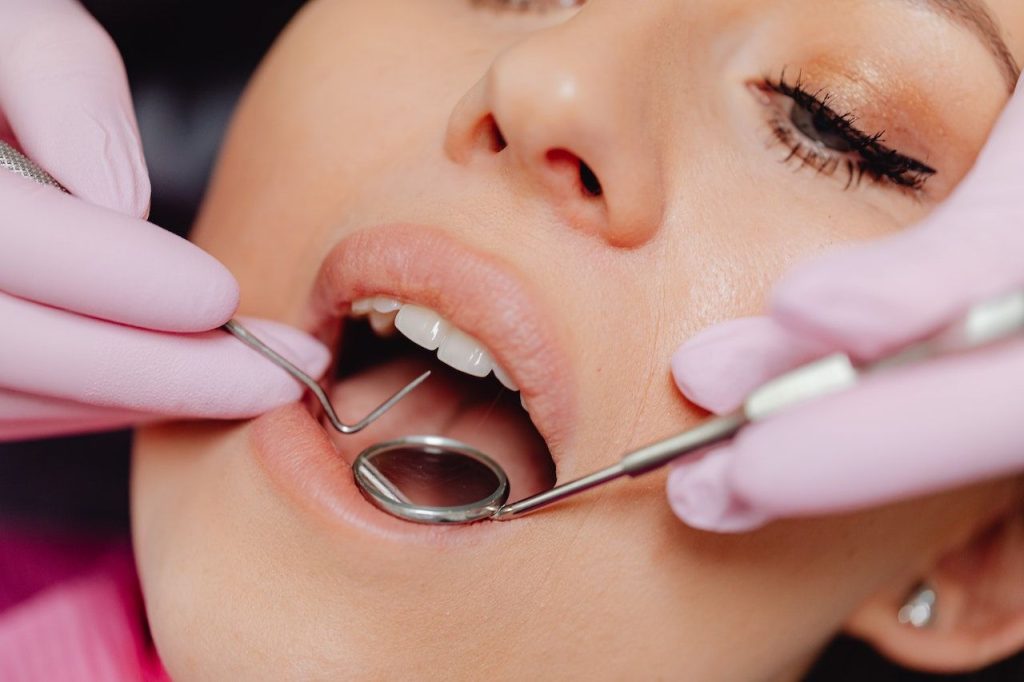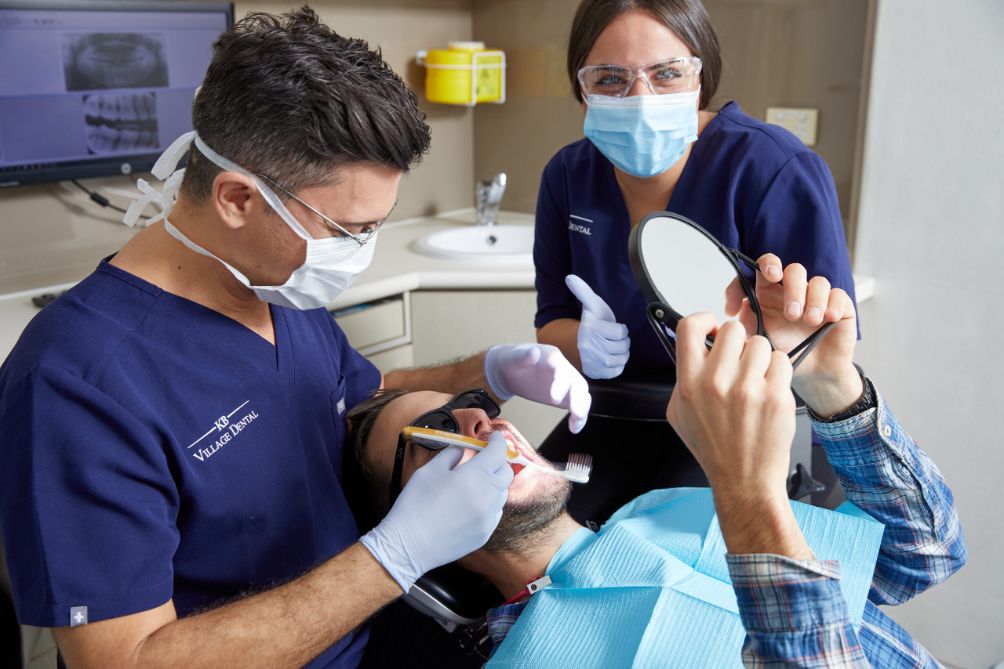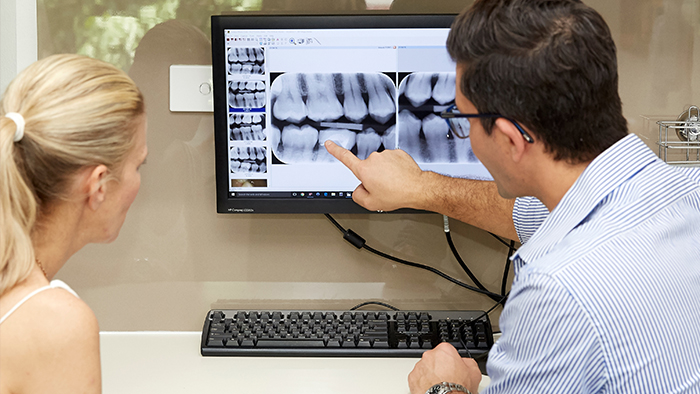Are dental crowns right for you? Pros & Cons to help you decide
A dental crown is a restorative cap used to repair a cracked, chipped or decaying tooth. If more than one tooth is damaged, dental crowns are used to protect these vulnerable teeth and prevent significant nerve pain inside the mouth. In their simplest form, dental crowns are custom-made, tooth-shaped caps that cover your entire tooth.
As a leading dentist in North Shore Sydney, we often provide patients with dental crown solutions and are well versed in the procedure and every step of the process. If you’re having trouble deciding whether or not a dental crown is the right choice for you, here is our guide to the advantages and disadvantages of dental crowns to consider.
How to decide if a dental crown procedure is worth it

If you’re considering having a dental crown, the chances are high that you have had other extensive work done, such as a dental implant or root canal therapy. Additionally, you may have had a history of dental problems or cavities with a tooth involving dental fillings, cracks, chips or discomfort.
Dental crowns are not often the first port of call for broken teeth, as they are a particularly invasive treatment option. Dentists will often try other options to maintain more of your natural teeth before suggesting a dental crown. This does not, however, mean that a dental crown is a bad choice. In fact, dental crowns can be an ideal, long-term solution to solving and protecting a cracked tooth, and covering a root canal or dental implant to replace missing teeth.
Due to the complex nature, time and cost involved, it is understandable that many people wonder if a dental crown is the right choice for them. We commonly hear questions like: what are the advantages of dental crowns? What are the disadvantages of dental crowns? What do I need to know?
The best way to answer these questions is to visit your dentist. The decision should be made by taking your full oral health and dental history into consideration. Every patient and tooth is different, and there is no online guide that can give you a definitive answer without an oral examination. If your dentist has, however, suggested a crown, here is a list of the pros and cons of dental crowns for you to consider.
5 Advantages of dental crowns

Pro 1: Long-term solution
Dental crowns are long-term solutions and have a long-life span of 5-15 years. This is a big advantage when they are being used to hold a dental bridge in place or to cover the top of dental implants. The long lifespan is also of benefit when compared with a large filling for a broken tooth that may not be as strong and durable.
Pro 2: Improves the appearance of your teeth
The crown is essentially a dental cap that covers the whole tooth, meaning that not only can it protect teeth and replace a missing tooth in conjunction with an implant, but it can improve the overall appearance of the tooth. Crowns are custom-made, so your dentist will help you choose the colour and can adjust the shape to improve your smile, match your adjacent teeth, and create a natural look.
Some people think of dental crowns as synonymous with a dark line around the gums. Historically the dark line was common with some types of crowns, however with advanced technology and a range of different materials available now, this is no longer a concern. For example, there is no way for a dark line to form with an all-ceramic crown or porcelain crown.
Pro 3: Supports vulnerable teeth
Dental crowns are commonly used to protect cracked teeth or as an alternate option to continuously patching and repairing heavily filled teeth. They cover the whole tooth and in doing so, act as a guard for the natural tooth below.
Pro 4: Replaces missing teeth
Missing teeth? You can avoid the hassle of dentures and plates thanks to dental crowns. A dental crown can help replace a missing tooth through either a dental bridge using surrounding teeth or dental implants.
Pro 5: High success rate
Though an intricate procedure, dental crowns have high success rates. Studies show a success rate for dental crowns ranging from 93-96% for the first five years, varying based on the crown’s composition. When done by an experienced professional, dental crowns can be highly effective and long-lasting, with a relatively low-risk factor.
4 Disadvantages of dental crowns

Con 1: Removes more natural tooth than other options
As a cap that covers the whole tooth, dental crowns can sometimes be used as a solution for cosmetic dentistry to help improve your smile. If your concerns about your teeth are purely cosmetic, however, a dental crown may not be the right choice as it involves removing more of your natural tooth structure than other procedures. If there are no underlying issues with the tooth, (such as cracks or pre-existing fillings) a dental veneer is usually the recommended option, as it is less invasive and leaves more of the natural tooth intact. Learn more about the pros and cons of different types of veneers in our blog post here.
Con 2: A loose crown encourages decay
Dental crowns can occasionally become loose, giving food and bacteria access to the natural tooth below, making it vulnerable to decay. The damage from tooth decay can be a major problem and cause further damage, pain, or sensitivity. This makes it crucial to have an experienced and qualified dentist make and fit your crown in place to ensure it lasts.
It also serves as a reminder to have regular dental check-ups and hygiene appointments so your dentist can keep an eye on your dental crowns and the health of the teeth below. Additionally, if your crown feels loose, make an appointment immediately, and don’t wait until your next check-up to see if it’s okay.
Con 3: Some patients experience sensitivity
Pain and sensitivity can sometimes follow a dental crown procedure. If the tooth still has a nerve in it, you may feel some hot and cold sensitivity for a short time after the procedure. Toothpaste designed for sensitive teeth can often bring relief. Other times, sensitivity may be caused by the crown being slightly too high and putting pressure on adjacent or opposing teeth. This can easily be fixed with a follow-up appointment with your dentist to adjust the crown.
Con 4: It is an intricate procedure
Dental crowns require skill and precision. There are many points throughout their application that require specific technique and skill, more so than some simpler dental procedures. A high level of precision and skill is required to ensure the crown fits, bonds and is completed properly. Therefore, it’s imperative to see a professional and experienced dentist. Too often we often see patients who have had budget work done overseas in dire need of extensive repairs and crown replacements often left worse off than before. The intricacy of the procedure means specialist care is always required.
Professional and advanced dental crown procedures

Dental crowns are evidently an ideal long-term solution to several dental concerns, such as replacing missing teeth and protecting cracked teeth. Of all the pros and cons, most of the disadvantages can be avoided by seeing a professional dentist with experience and high levels of quality care.
That is where we come in. Not only are our dentists qualified, highly educated, skilled and professional, but we have state-of-the-art technology that allows us to complete the entire crown procedure in one extended visit. Gone are the days of messy impressions, leaving with a temporary crown and multiple appointments to get your crown fitted. Dr Evans’ CEREC CAD-CAM technology and milling machine can make the crown in one go, improving the quality of the crown, reducing waste, and providing instant results.
If you are looking for quality dental care in Sydney to discuss a dental crown, send us an enquiry today.

